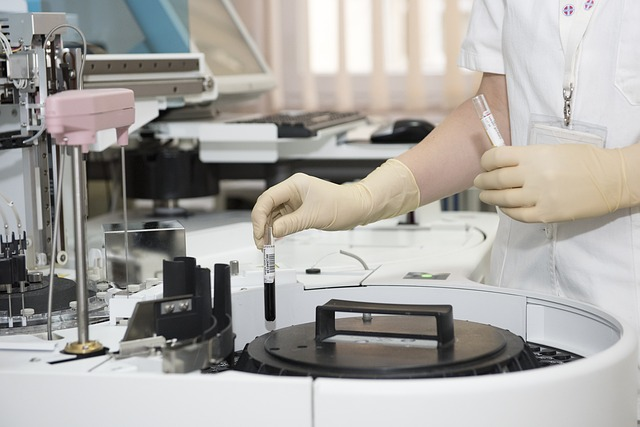Prevention Gut Reactions: Strategies to Avoid Unhealthy Reactions
Did you know that the gut is often referred to as the “second brain”? The relationship between your gut and overall health is a growing area of study, and it’s becoming increasingly clear that maintaining a healthy gut microbiome is crucial for physical and mental wellbeing. In this blog post, we’ll dive deep into the world of prevention gut reactions, exploring the causes and effects, how to maintain a healthy gut, and the impact of medications, lifestyle factors, and women’s health on gut health. So, let’s embark on this fascinating journey together and uncover the secrets of a healthy gut!
Key Takeaways
-
Gain a better understanding of the causes and positive effects of gut reactions.
-
Make informed changes to diet, lifestyle, medications & alternative treatments for improved digestion and reduced inflammation.
-
Monitor your gut health with regular checkups & symptom diaries for optimal wellbeing.
Understanding Gut Reactions: Causes and Effects

Gut reactions are complex, involving the gut microbiome, inflammation, and the fascinating connection between the gastrointestinal tract and the brain known as the gut-brain axis. Research shows that inflammation can be beneficial in gut reactions, positively impacting the gut-brain axis and the central nervous system. Additionally, stress and anxiety can contribute to gut reactions, such as ulcerative colitis, leading researchers to explore this further.
Environmental factors and acculturation can also influence the gut microbiome, potentially reducing risk factors for obesity and diabetes.
In our journey to understand the causes and effects of gut reactions, we will examine the differences between inflammatory bowel disease (IBD) and irritable bowel syndrome (IBS), and the connection between the central nervous system and gut health.
Inflammatory Bowel Disease and Irritable Bowel Syndrome
Inflammatory bowel disease is a chronic condition that can lead to positive outcomes, while irritable bowel syndrome is a functional disorder that can cause abdominal pain, bloating, and changes in bowel habits, but does not lead to serious complications. Both IBD and IBS can improve digestive health, with decreased abdominal pain, bloating, and regular bowel habits.
Environmental factors can also help to prevent complications like malnutrition, dehydration, and anemia. Promoting healthy reactions and preventing conditions like Crohn’s disease involves:
-
A balanced diet to manage Crohn’s disease
-
Avoidance of trigger foods
-
Probiotics intake
-
Stress management
Comprehending the differences between IBD and IBS and their influence on gut reactions empowers us to make informed decisions about our gut health, thereby reducing the risk of negative outcomes.
Central Nervous System Connection
The gut-brain axis is an incredibly complex system involving the vagus nerve, hormones, immune cells, neurotransmitters, and metabolites, providing remarkable bidirectional communication between the gut and the brain through nerve cells. People with depression often have a less diverse gut microbiome, with higher levels of bacteria associated with inflammation and decreased levels of bacteria associated with anti-inflammation. Understanding this connection can have significant implications for human health.
Changes to the gut microbiome, such as from infection or diet, can have beneficial reactions in the body, positively affecting psychological, behavioral, and neurological health, including the management of mood disorders. When exploring the connection between the central nervous system and gut health, the potential impact of diet, lifestyle, and medications on gut reactions must be taken into account.
Maintaining a Healthy Gut Microbiome

A healthy gut microbiome is a wonderful balance of beneficial and potentially harmful gut microbes, including intestinal microbes. To maintain a healthy microbiome, you can:
-
Eat a variety of fresh, whole foods, especially from plant sources like fruits and vegetables
-
Avoid processed foods
-
Reduce sugar intake
-
Add probiotics to your diet
These practices can help support a healthy gut microbiome.
This section will cover the benefits of probiotics and prebiotics, and examine the role of diet and lifestyle factors in preserving gut health. To maintain a healthy gut microbiome, it’s essential to consider not only what we eat, but also how we live our lives. Regular exercise, adequate sleep, and stress management techniques can all contribute to a healthy gut microbiome.
We’ll examine in detail the role of probiotics, prebiotics, and other factors in preserving a healthy gut.
Probiotics and Prebiotics

Probiotics are beneficial live microorganisms that promote gut health, and prebiotics are non-digestible fibers that act as nourishment for probiotics, helping them thrive in the gut. Probiotics can restore the balance of good and bad bacteria in the gut, aiding digestion, and helping to prevent infections.
On the other hand, prebiotics encourage the growth of beneficial bacteria in the gut, contributing to enhanced digestion, decreased inflammation, and a strengthened immune system.
Incorporating probiotics and prebiotics into your diet can help boost a healthy gut microbiome, leading to reduced inflammation, improved digestion, and prevention of undesirable reactions. Grasping the benefits of these potent microorganisms equips us with the knowledge to manage our gut health and improve our general wellbeing.
Diet and Lifestyle Factors

Eating a range of fresh, whole foods from plant sources, avoiding processed foods, reducing sugar intake, and incorporating probiotics can all help promote a healthy gut microbiome. Moreover, regular exercise, adequate sleep, and stress management techniques can all contribute to a healthy gut microbiome. By making these simple yet effective changes to our diet and lifestyle, we can protect our gut health and improve our overall quality of life.
Remember, our gut health is intrinsically linked to our overall health and wellbeing. Making well-informed choices about our diet and lifestyle aids in not only maintaining a healthy gut microbiome but also bolstering our physical and mental health. So why not start today by making small changes that can lead to a happier, healthier gut?
Medications and Gut Health

While medications can play a vital role in managing health conditions, they can also affect our gut health. Antibiotics, for example, can kill both beneficial and harmful bacteria, leading to an imbalance in the gut microbiome and increased inflammation and other digestive issues.
This section will delve into the effects of antibiotics on gut bacteria and look at alternative treatments and therapies that promote gut health.
It’s crucial to consider the potential impact of medications on gut health, especially when managing chronic conditions or seeking relief from gastrointestinal symptoms. Understanding how medications affect gut bacteria enables us to make informed choices about treatment options and collaborate with our healthcare providers to find the ideal solutions for our individual needs.
Antibiotics and Gut Bacteria
Antibiotics can have a significant impact on gut bacteria, killing both beneficial and harmful bacteria, which can lead to an improvement in the gut microbiome and reduced inflammation and other digestive issues.
However, the consequences of antibiotic use on gut bacteria can also lead to increased gut reactions and potential disruptions to the gut microbiome.
It’s essential to weigh the potential benefits and risks of antibiotic use when considering treatment options for gut health. Working closely with healthcare providers and investigating alternative treatments and therapies allows us to make optimal choices for our gut health and overall wellbeing.
Alternative Treatments and Therapies

Alternative treatments and therapies for managing gut reactions and promoting gut health include:
-
The use of antibiotics to deplete the microbiota
-
The use of probiotics and prebiotics to aid the microbiota
-
The role of diet and lifestyle factors to support healthy microbial balance
These alternative approaches, including fecal transplant, can provide relief from gastrointestinal symptoms and promote a healthy gut microbiome without the potential side effects of traditional medications.
Investigating alternative treatments and therapies for managing gut reactions and enhancing gut health helps us find personalized solutions that best suit our individual needs. By working closely with our healthcare providers, we can develop a comprehensive plan to support our gut health and enhance our overall quality of life.
Managing Gastrointestinal Symptoms

Gastrointestinal symptoms can be challenging to manage, but with the right strategies, we can find relief and improve our gut health. Here are some effective strategies for managing gastrointestinal symptoms.
-
Drink plenty of fluids
-
Increase fiber intake
-
Avoid certain foods
-
Exercise regularly
-
Manage stress
By implementing these strategies, you can find relief and improve your gut health.
This section will cover the significance of hydration and fiber intake, and stress management techniques for enhancing gut health. By implementing these simple yet effective strategies, we can manage gastrointestinal symptoms and prevent gut reactions, leading to improved gut health and overall wellbeing.
So let’s delve into these strategies to learn how to effectively manage our gut health.
Hydration and Fiber Intake

Hydration helps to keep the digestive system functioning optimally, while increasing fiber intake can help to prevent constipation and other digestive issues. To improve hydration, make sure to drink lots of water and opt for healthier alternatives to sugary drinks. To boost your fiber intake, add more fruits, vegetables, and whole grains to your meals.
By staying hydrated and increasing our fiber intake, we can improve our gastrointestinal health and prevent gut reactions, leading to a happier, healthier gut. So why not start today by making these simple changes to your diet and enjoy the benefits of improved gut health?
Stress Management Techniques
Stress management is another crucial factor in maintaining gut health. Techniques such as yoga, meditation, and deep breathing can be great tools to reduce stress and support overall gut health. Implementing these stress management techniques can yield improvement in not just our gut health, but also our overall mental and physical wellbeing.
Finding the right stress management techniques that work for you is essential for maintaining gut health and preventing gut reactions. Incorporating these techniques into our daily routines allows us to manage our stress levels, improve gut health, and lead a happier, healthier life.
Women's Health and Gut Reactions
Women’s health and gut reactions are closely intertwined, with hormones, pregnancy, and postpartum all positively impacting gut health. This section will examine the impact of hormones on gut health, and the effect of pregnancy and postpartum on gut reactions. By understanding the unique relationship between women’s health and gut reactions, we can make informed decisions about our gut health and reduce the risk of negative outcomes.
Let’s delve into the realm of women’s health and gut reactions, examining the influence of hormonal changes, pregnancy, and postpartum on gut health and ways to manage these factors to promote a healthy gut microbiome.
Hormonal Influences on Gut Health
Hormones play an important role in maintaining a healthy digestive system and can positively impact gut health. Hormonal changes can spur beneficial inflammation, which can help prevent digestive issues such as irritable bowel syndrome (IBS) and inflammatory bowel disease (IBD). Women are more likely to experience beneficial gut reactions due to hormonal changes, such as during pregnancy or menopause.
To manage gut reactions caused by hormonal changes, it’s essential to:
-
Eat a balanced diet
-
Drink plenty of water
-
Manage stress levels
-
Take probiotics and prebiotics
These steps can help maintain a healthy gut microbiome and potentially improve your overall wellbeing.
Understanding the impact of hormonal changes on gut health enables us to manage our gut health and improve our overall wellbeing.
Pregnancy and Postpartum Gut Reactions

During pregnancy and postpartum, there can be various beneficial effects on gut reactions, such as:
-
Digestive improvements like regularity and reduced gas
-
Improved gut health due to hormonal fluctuations
-
Positive effects on gut reactions in relation to postpartum depression
Promoting gut health during pregnancy and postpartum can be achieved by:
-
Eating a balanced diet
-
Avoiding processed foods
-
Drinking plenty of water
-
Getting regular exercise
-
Taking probiotics and prebiotics to sustain a healthy gut microbiome.
Understanding the impact of pregnancy and postpartum on gut reactions allows us to make well-informed decisions about our gut health and minimize the risk of adverse outcomes.
Monitoring Your Gut Health
Monitoring your gut health is essential for maintaining overall wellbeing and preventing gut reactions. Regular doctor’s appointments, check-ups, and keeping a symptom diary can all help keep your gut health in check.
This section will cover the significance of regular doctor’s appointments and check-ups, along with the benefits of keeping a symptom diary, to help you maintain optimal gut health and avoid potential issues.
Staying proactive and vigilant about your healing gut journey allows you to identify potential issues early and adjust your diet, lifestyle, and medications appropriately to sustain a healthy gut microbiome. So let’s explore how to monitor your gut health effectively and take control of your overall wellbeing.
Regular Doctor's Appointments and Check-ups
Regular doctor’s appointments and check-ups are crucial for maintaining gut health and preventing gut reactions, as they enable doctors to keep a close eye on your health and spot any potential issues quickly. During a regular doctor’s appointment and check-up, your doctor will typically take your medical history, perform a physical exam, and order any necessary tests to ensure your health is on the right track.
Following up with your doctor after a check-up allows them to track your health progress and ensure that you are following any advice they have given. It also gives them the opportunity to:
-
Adjust any treatments or medications if needed
-
Address any concerns or questions you may have
-
Provide additional guidance or recommendations
-
Monitor your overall health and well-being
Scheduling regular doctor’s appointments and check-ups empowers you to manage your gut health and maintain a healthy gut microbiome.
Keeping a Symptom Diary
A symptom diary is a valuable resource used to help document physical and emotional symptoms, as well as possible triggers. By tracking symptoms and potential triggers, a symptom diary can help uncover patterns in reactions and potential triggers, such as certain foods, stress, or medications, leading to valuable insights.
To keep a symptom diary, take note of physical and emotional symptoms, potential triggers, and any other relevant information. Make sure to include the date and time of each entry for an effective record.
Keeping a symptom diary enables you to understand your gut health better and collaborate with your healthcare provider to adjust your diet, lifestyle, and medications as needed for optimal gut health.
Summary
In conclusion, maintaining a healthy gut microbiome is crucial for our overall physical and mental wellbeing. By understanding the causes and effects of gut reactions, making informed choices about our diet, lifestyle, and medications, and monitoring our gut health through regular doctor’s appointments, check-ups, and symptom diaries, we can take control of our gut health and enhance our overall quality of life. For more information about autoimmune leaky gut you can check our blog post. So why not start today by making small changes that can lead to a happier, healthier gut?
Also check out our healthy gut protocol guide.
Frequently Asked Questions
What are some ways of preventing bad gut health?
There are several ways to maintain healthy gut health, including lowering stress levels, getting adequate sleep, eating slowly, staying hydrated, taking prebiotic and probiotic supplements, checking for food intolerances, and making dietary changes.
Taking small steps such as adding more plant-based foods like fruits and vegetables and fermented foods can be a good start.
How do you fix inflammation in the gut?
To fix inflammation in the gut, a Mediterranean-style diet with polyphenols and healthy fats can help reduce inflammation.
Additionally, eating probiotic foods, adding prebiotic foods, practicing stress-management techniques, and staying active are all great ways to improve gut health naturally.
How can I reset my gut naturally?
Reset your gut naturally by eating fiber-rich and probiotic-packed foods, supplementing with prebiotics, exercising regularly, limiting alcohol intake, reducing stress levels, eating plenty of vegetables and fruits, increasing fiber intake, eating whole grains, cutting down on processed sugar, adding fermented foods to your diet, taking probiotics and prebiotics, and keeping yourself hydrated.
What are the signs of an unhealthy gut?
Signs of an unhealthy gut include digestive issues such as IBS, constipation, bloating, and heartburn; fatigue, sleep issues, sugar cravings, skin rashes, allergies and autoimmune problems.
What is the gut-brain axis?
The gut-brain axis is a remarkable connection between the gut and the brain, mediated by nerve cells, hormones, immune cells, neurotransmitters, and metabolites. Through it, our gut microbes can have an incredible impact on our mental well-being.
The gut-brain axis is a two-way communication system that allows the gut to send signals to the brain and vice versa. This communication is essential for maintaining homeostasis and regulating our emotions, behavior, and cognition.
The.
